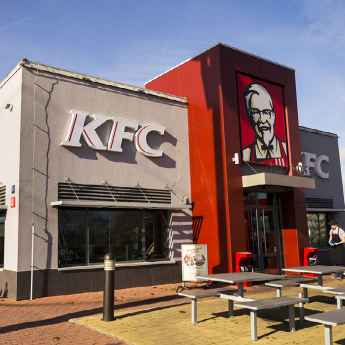COVID-19 has decimated SMEs in South Africa, can the lessons of past successes of franchises help them to rebuild?
Franchises have shown themselves to be a darling of the South African economy. Be it international brands or local labels, franchises make for big business. The country is home to some 865 franchise systems that operate over 45,000 outlets owned by 40,528 franchisees. By 2017, those franchises together employed close on 370,000 people.
In 2017, franchises contributed 13.3% to South Africa’s overall GDP having grown into a R587 billion (US$42b) industry. Not too surprisingly, fast food and restaurant franchises are the largest and fastest growing in the South African system, contributing 2% of total franchise revenue. But these same businesses are among those that have been hardest hit by the COVID-19 pandemic — although the full extent of these losses is not yet known.
In the past franchises have proven themselves to be among the more durable of the country’s SMEs; some 66% of South African franchisors have been in business for longer than a decade — in sharp contrast to the estimated 50% of small businesses that fail within 24 months of their launch. Now may be the time to revisit the lessons of their success as the industry and the economy look to rebuild in the wake of the crisis.
Three building blocks for franchise success in South Africa
Despite their success in the market, little is known about what makes franchises tick, and what keeps them ticking over. There are of course certain universals at play that help them to thrive, but we also need to understand what particular factors help them navigate South Africa’s peculiar fragmented market where first and third world economies sit side by side.
Our research at the UCT Graduate School of Business has uncovered several critical success factors for South African franchises, including customer-centricity, brand strength, franchisee dedication and mutual trust and sharing. From this, we’ve distilled three essential building blocks for franchise success: brand support, intellectual connection and emotional commitment.
1. Make sure the brand is front and centre
A strong reputable brand is really the cornerstone on which the franchisees make an intellectual connection and emotional commitment to the business and allows businesses to establish themselves far quicker than they otherwise could. But it must be backed up by robust systems, processes and controls; a strong and cohesive brand is not something that happens by chance. To create brand cohesion in their franchisee network, for example, franchisors need to invest in a clear brand identity system, and ensure franchisees and their staff are in full alignment with the purpose, vision, mission and values of the brand. As brand ambassadors it is essential that they resonate with the brand and believe in what they are selling.
2. Create an intellectual connection with customers
Customer centricity is critical here, and franchises should be encouraged to utilise technology such as customer relationship management (CRM) software to better understand customer behaviour and obtain insights about customers. Regular training to franchisees and staff on all systems, processes and operations should be provided to ensure the highest levels of customer experience. Brand consistency is vital here too and needs to be in place on two levels for franchises: across outlets as well as in-store. The franchisor needs to implement and maintain robust systems, controls and processes across the network to ensure consistency and monitor underperforming outlets so that they can intervene where necessary. In turn, a ‘model store’ could serve as an example to franchisees of best practices.
3. Build a strong emotional connection between franchisors and franchisees
The relationship between the franchisor and the franchisee surfaced as a recurring theme underpinning all other factors. The franchisor wants a franchisee who is invested in the brand and willing to cover the hard yards in their outlet; the franchisee, in turn, needs franchisors who will offer the necessary support that will aid the business. Fostering an emotional connection among franchisees is more challenging as it is emotive and intangible, but this is the glue that holds it all together. Both franchisors and franchisees consider ‘trust’, ‘knowledge sharing’ and ‘mutual satisfaction’ as critical for success. Franchisors can increase their chances of selecting the right franchisees by including personality tests in the selection process, and for existing franchisees, regular self-reflection to assess their level of motivation and dedication — to remember why they started the business and what their greater purpose is — can be helpful. The guidance of a mentor or business coach may also be useful here as is having a clear vision and goals in place for a business help keep business owners focused.
Of course, other factors matter too. South African franchisees cited the location of the business as important. So too they wanted experienced management staff, with staff management listed prominently among their considerations. (Theft is a recurring theme). But we found that by focusing on the above three elements, both franchisors and franchisees provide the foundation on which a successful outlet can be built.
Franchises clearly pack a lot of economic punch. And there is room for growth in South Africa. A global 2017 survey put the size of South Africa’s franchising industry at 36th on a list of 181 countries. What’s more, as the economy reels from the fallout of the COVID-19 pandemic, the lessons we’ve learned may be vital in helping this sector — and others — rebuild.
Professor Geoff Bick is Emeritus Professor of Marketing at the UCT GSB; Stefanie de Wet is co-founder and managing director of Canvas Club and the Creative Crafting Club and holds an MBA from the UCT GSB. This article is based on a paper they recently published with Professor Russell Abratt of the School of Business, George Mason University in the US.








































